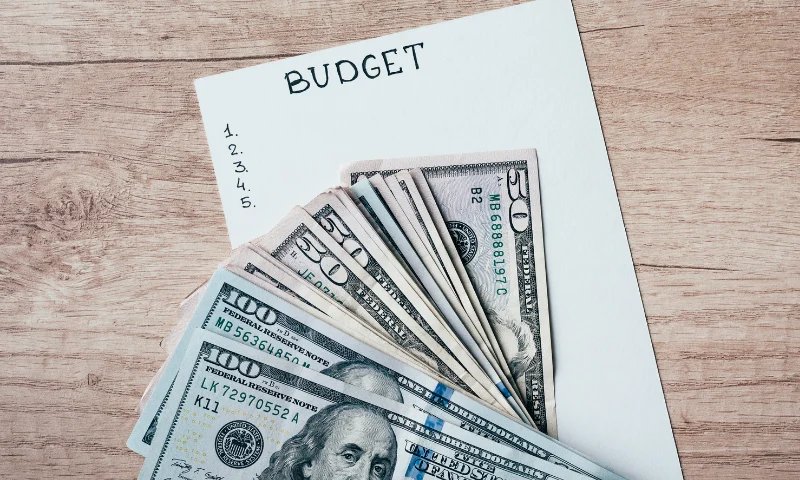Are you in the process of buying a home or property? If so, you’ve likely heard the term “earnest money deposit” thrown around. But what exactly is an earnest money deposit, and why is it important?
The earnest money deposit is a sum of money put down as a sign of good faith and commitment for the purchase. It’s a way for the buyer to show the seller that they are serious about buying the property and have the financial means to do so.
However, earnest money deposits can also be a source of confusion and frustration for buyers and sellers alike. In this article, we’ll dive into everything you need to know about earnest money deposits.
So, whether you’re a first-time homebuyer or bought a home before read on to learn more on earnest money deposits.
What is earnest money?
The earnest money deposit is held by a third party, such as an escrow company, until the sale is finalized.
The purpose of this is to protect both the buyer and the seller in case the deal falls through. If the sale goes through, the earnest money is applied toward the purchase price of the property. If the sale does not go through, the earnest money is returned to the buyer, subject to certain conditions.
Why do you need to make an earnest money deposit?
An earnest money deposit is important because it shows the seller that you are serious about purchasing the property.
It also helps to establish credibility with the seller and can give you an advantage over other potential buyers. In a competitive market, where there may be multiple offers on a property, a higher earnest money deposit can help your offer stand out from the rest.
Furthermore, an earnest money deposit can help to protect you as the buyer. By putting down a deposit, you are showing that you have the financial means to purchase the property.
How much earnest money should you put down?
The amount of earnest money you should put down can vary based on several factors, including the purchase price of the property, the location, and the current real estate market conditions. In general, earnest money deposits are typically between 1% and 5% of the purchase price of the property.
However, keep in mind that the amount of earnest money you put down can also depend on the seller’s requirements.
Some sellers may require a higher deposit to show that the buyer is serious about purchasing the property. In some cases, the amount of earnest money required may also be negotiated between the buyer and the seller.
It’s important to keep in mind that the earnest money deposit is not the same as the down payment.
The down payment is a separate payment made by the buyer toward the purchase price of the property, while the earnest money deposit will usually get applied towards your down payment.
Earnest money deposit vs. down payment
As I mentioned earlier, the earnest money deposit is not the same as the down payment. The down payment is a payment made by the buyer toward the purchase price of the property, while the earnest money deposit is a sign of good faith made at the beginning of the home buying process.
The down payment is typically a larger sum of money than the earnest money deposit and is made at the time of closing. The amount of the down payment can vary based on the type of loan and the lender’s requirements.
In general, down payments are typically between 5% and 20% of the purchase price of the property.
The earnest money deposit, on the other hand, is typically a smaller percentage of the purchase price of the property and is made at the beginning of the home buying process.
Can you get your earnest money deposit back?
In most cases the earnest money deposit is applied toward the purchase price of the property.
However, if the deal falls through, the buyer may be entitled to a refund of the earnest money deposit. There are certain conditions that must be met in order for the buyer to receive a refund.
For example, if the buyer backs out of the sale without a valid reason, they may forfeit the earnest money deposit. Additionally, if the buyer fails to meet certain deadlines or contingencies outlined in the purchase agreement, they may also forfeit the earnest money deposit.
It’s important to review the terms of the purchase agreement carefully before making an earnest money deposit.
Make sure you understand the conditions under which the earnest money deposit may be forfeited, and make sure you are comfortable with those conditions before proceeding with the sale.
What happens to your earnest money if the deal falls through?
If the deal falls through, the earnest money deposit is typically returned to the buyer, subject to certain conditions.
As mentioned earlier, if the buyer backs out of the sale without a valid reason, they may forfeit the earnest money deposit.
Additionally, if the buyer fails to meet certain deadlines or contingencies outlined in the purchase agreement, they may also forfeit the earnest money deposit.
If there is a dispute over the earnest money deposit, it may need to be resolved through mediation or in court. This is why it’s important to review the terms of the purchase agreement carefully before making an earnest money deposit.
How to make an earnest money deposit

Making an earnest money deposit is a relatively simple process. The deposit is typically a check or wire transfer usually held by a third party, such as an escrow company.
To make an earnest money deposit, you will need to work with your real estate agent or attorney to draft a purchase agreement that outlines the terms of the sale.
The purchase agreement will typically include the amount of the earnest money deposit, the conditions under which the deposit may be forfeited, and the deadline for making the deposit.
Once the purchase agreement is signed by both the buyer and the seller, the earnest money deposit can be made. The deposit is typically made to the escrow company, which will hold the funds until the sale is finalized.
Common mistakes to avoid when making an earnest money deposit

When making an earnest money deposit, there are a few common mistakes that buyers should avoid.
One of the biggest mistakes is failing to review the terms of the purchase agreement carefully before making the deposit. Buyers should make sure they understand the conditions under which the earnest money deposit may be forfeited and should make sure they are comfortable with those conditions before proceeding with the sale.
Another common mistake is failing to make the deposit on time. The purchase agreement will typically include a deadline for making the deposit, and failing to meet that deadline can result in the forfeiture of the earnest money deposit.
Finally, buyers should make sure they have the funds available to make the deposit. If you plan on making a deposit by check, your funds should be available in the account before the check is written. If the deposit is made by wire transfer, the buyer should make sure they have the necessary funds in their account before initiating the transfer.
Earnest money deposit in different types of real estate transactions
I have seen earnest money deposits used in a variety of ways including home purchases, commericial real estate and even land purchase.
The Earnest money deposits can be used in a variety of real estate transactions, including residential home purchases, commercial real estate transactions, and even land purchases.
In conclusion, an earnest money deposit is an important part of the home buying process. It shows the seller that you are serious about purchasing the property and has the financial means to do so.
However, it’s important to review the terms of the purchase agreement carefully before making an earnest money deposit.
Buyers should make sure they understand the conditions under which the deposit may be forfeited. You should make sure they have the funds available to make the deposit.
Buyers can use the EMD to their advantage and increase their chances of successfully purchasing the property of their dreams.




